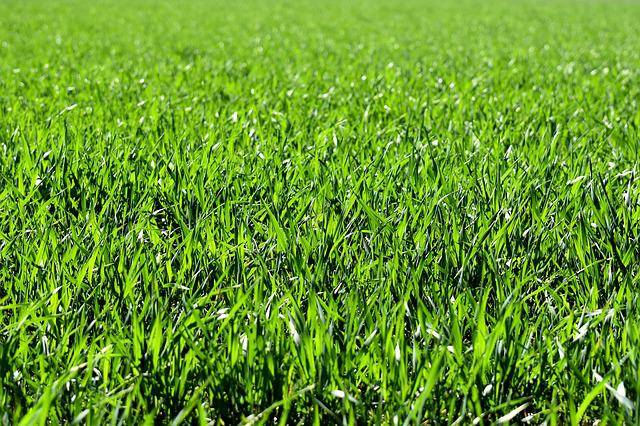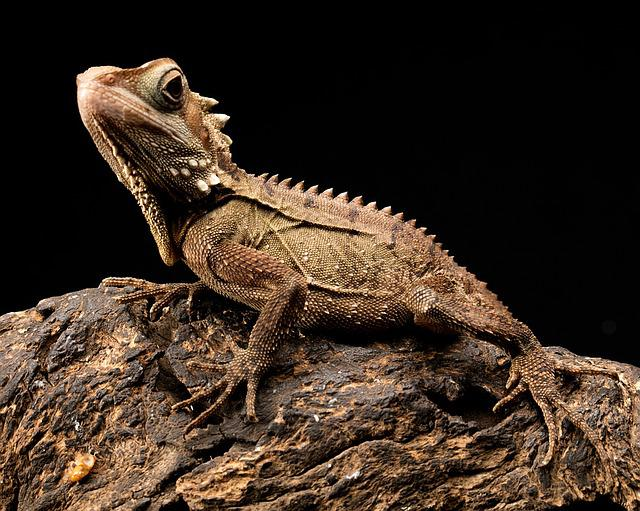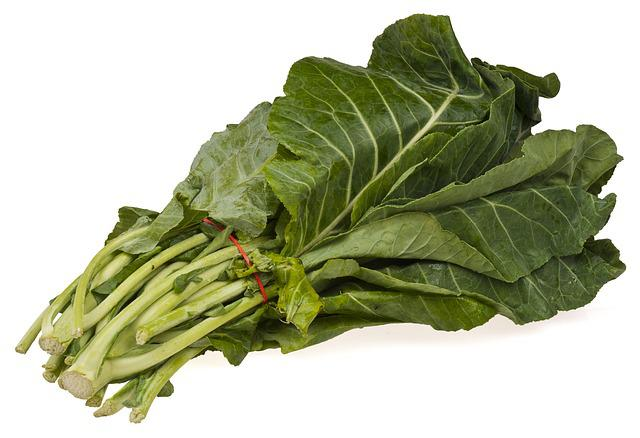Can bearded dragons eat grass? This is a question that many people have, and the answer is yes, bearded dragons can eat grass. However, they don’t require a lot of plant matter to survive since 80% of their diet consists of insects. In this blog post, we will discuss the benefits of giving your bearded dragon grass, as well as how much to give them at a time.
What Is Grass?

Grass is a type of plant that is found in many yards and gardens. It is also the main food source for herbivores, such as cows, deer, and rabbits. Grass consists of leaves, stems, and roots. The leaves are what contain the most nutrients, while the stems and roots are mostly made up of fiber.
Can Bearded Dragons Eat Grass?
Yes, bearded dragons can eat grass. Bearded dragons can consume grass, albeit it is not the greatest source of nutrition and isn’t very nutritious. You should also make sure the grass hasn’t been treated with chemicals because these could be harmful to your dragon’s health. If you’re looking for a more nutritious plant-based food for your bearded dragon, we suggest giving them kale or collard greens instead of grass.
What Are The Benefits Of Giving Your Bearded Dragon Grass?
There are several benefits of giving your bearded dragon grass. The first benefit is that it can help with their digestion. Fiber is an important part of a bearded dragon’s diet, and grass is a good source of fiber. Another benefit of giving your bearded dragon grass is that it can provide them with essential vitamins and minerals. Grass is a good source of vitamin A, which is important for a bearded dragon’s health. It can also help to prevent obesity in bearded dragons.
How Much Grass Should You Give Your Bearded Dragon?
You should only give your bearded dragon a small amount of grass at a time. We recommend giving them no more than two leaves per day. You can either chop the grass up into small pieces or tear it into smaller pieces. If you’re giving your bearded dragon fresh grass, make sure to wash it first to remove any dirt or debris.
Do Bearded Dragons Eat Grass in The Wild?

In the wild, bearded dragons eat a variety of foods, including insects, small mammals, and reptiles. Bearded dragons eat flowers and plant matter, such as grass. The amount of plant matter that they eat depends on the availability of food in their environment. If there is an abundance of insects, they will consume more insects and less plant matter. Their diet consists of 80% insects and 20% plant matter.
Is Grass A Good Source Of Food And Energy For Bearded Dragons?
No, grass is not a good source of food and energy for adult bearded dragons. While they can consume grass, it is not a very nutritious food and doesn’t provide them with the nutrients they need to survive.
Risks Of Feeding Bearded Dragons Grass
Should bearded dragons eat leaves or grass, there are a few risks associated with feeding young beardies grass.
Pesticides
The first risk is that the grass could be treated with chemicals, which could be harmful to your dragon’s health. Another risk is that grass can contain parasites, which can make your bearded dragon sick. If you’re going to feed your bearded dragon grass, make sure to wash it first to remove any dirt or debris.
Indigestion
The third risk is that grass can cause indigestion in bearded dragons. This is because grass is a good source of fiber, and too much fiber can cause problems with their digestion. If your bearded dragon is having problems with their digestion, we recommend giving them a probiotic supplement to help them out.
They’re Not Naturally Equipped For It
The fourth and final risk is that bearded dragons are not naturally equipped to eat grass. Their bodies are not designed to digest grass properly, which can lead to health problems. If you’re going to feed your bearded dragon grass, make sure to do so in moderation and consult with a veterinarian first.
5 Healthy Alternatives To Grass For Bearded Dragons

If you’re looking for a more nutritious plant-based food for your bearded dragon, we suggest giving them:
Kale
Kale belongs to the cruciferous family of vegetables, which also includes broccoli, Brussels sprouts, and cabbage. Kale is a good source of vitamins A, C, and K. It’s also a good source of fiber and calcium. It can help to improve your bearded dragon’s digestion and can also help to prevent obesity.
Collard Greens
Collard greens are another leafy green vegetable that’s a good source of vitamins A, C, and K. Collard greens can help to improve your bearded dragon’s immune system and against free radicals. Collard greens can also help to prevent obesity.
Spinach
Spinach belongs to the same family of vegetables as kale and collard greens. It’s a good source of vitamins A, C, and K. Spinach is also a good source of iron and folic acid. It can help to improve your bearded dragon’s blood circulation and can also help to prevent anemia.
Parsley
Parsley is native to the Mediterranean region and is a good source of vitamins A, C, and K. It’s also a good source of calcium and iron. Parsley can help to improve your bearded dragon’s digestion and help fights inflammation.
Cilantro
Cilantro is another herb that’s native to the Mediterranean region. It’s a good source of vitamins A, C, and K. Cilantro is essential for bearded dragons as it can help to remove toxins from their bodies.
Conclusion
Can bearded dragons eat grass? Yes, they can, but it’s not a very nutritious food and can cause indigestion. If you’re looking for a more nutritious plant-based food for your bearded dragon, we suggest giving them kale, collard greens, spinach, parsley, or cilantro instead of grass. Remember to consult with a veterinarian before making any changes to your bearded dragon’s diet. Thanks for reading!
We hope you enjoyed this blog post. If you have any questions, feel free to leave a comment below.
Related Articles
Do Bearded Dragons Absorb Water Through Their Skin?
Can Bearded Dragons Eat Cabbage?
Can Bearded Dragons Eat Iceberg Lettuce?

